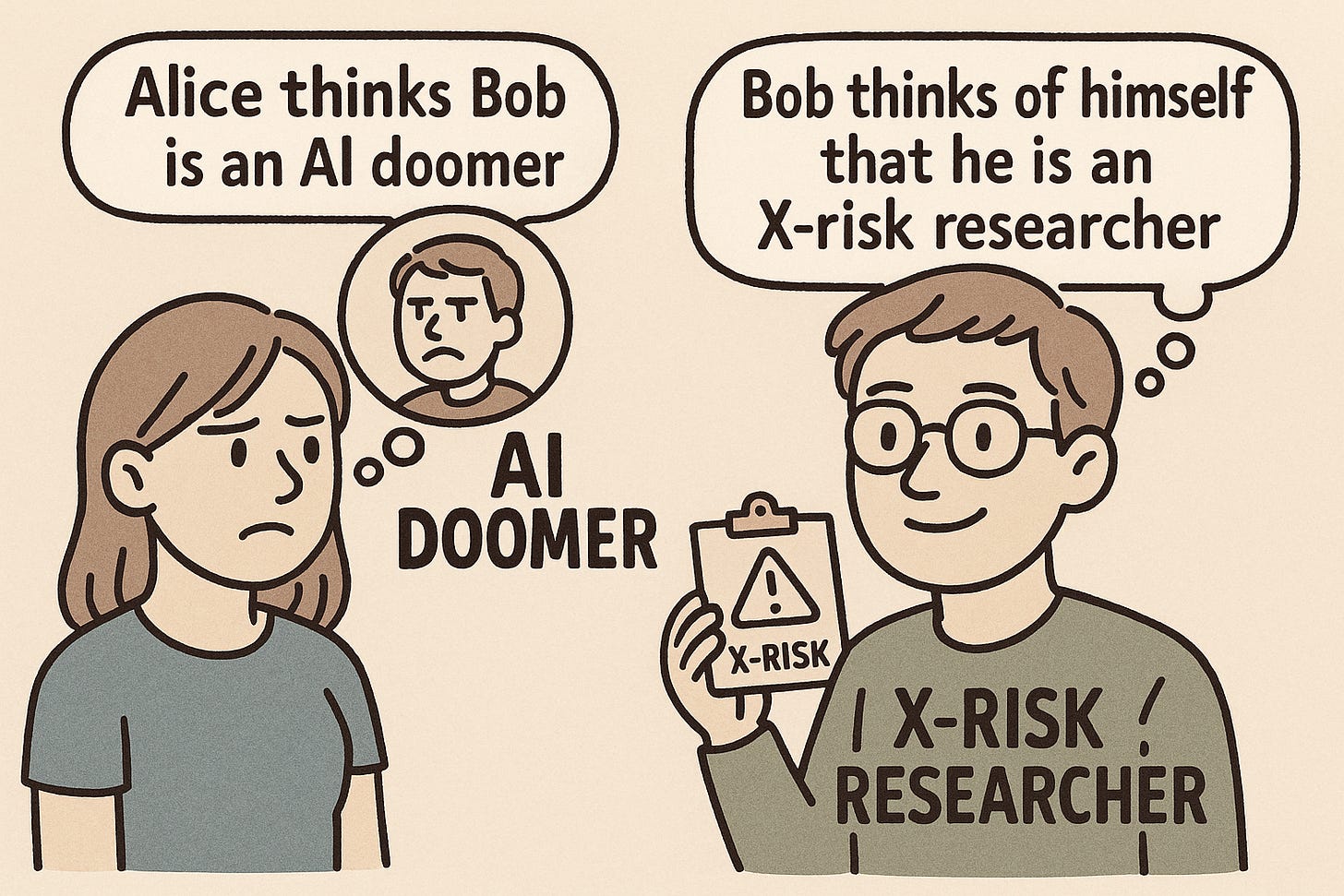Why this is so complex
There is no neutral ground
Alice and Bob disagree on how to best describe Bob. Bob calls himself an X-risk researcher. Alice calls Bob an AI doomer.
A timely local example.
Notice how implicit in the question of “What to call Bob?” is the question “What is Bob?” i.e. “What should we primarily understand Bob as?”, “What interpretative frame should we apply to Bob’s statements by default?”
If we fall into the “Bob is a Doomer” camp, then his statements should be interpreted as being more revealing of his personality than of whatever they are ostensibly about. But if we fall into the “Bob is a Researcher” camp, then his statements should be taken to be more about whatever he is researching than about himself.
While, in the first scenario, we get to just dismiss whatever Bob says off-hand; in the second, we get to fret about it. Such is the power of names.
Because they disagree on what to call Bob, Bob and Alice also disagree on how to classify the words they’re using to describe him.
Classification is hard. That difficulty—to earnestly say whether something is naming or renaming—gets compounded when the word being classified touches upon social matters. That very difficulty allows both Bob and Alice to legitimately hold on to their ground, the ambiguity enables a fight as each of them gravitates toward the name that frames things in ways that feels true to them, while different things feel true for either.
But this kind isn’t limited to Alice and Bob. At any moment in time there’s many other such battles:
“Estate Tax” vs “Death Tax”
“Suicide” vs “Euthanasia” vs “Death with Dignity” vs “Canada”
“Abortion” vs “Choice”
“Terrorist” vs “Freedom Fighter”
Etc.
A different way of saying all of the above: the naming battle (which name should win? what should we call Bob?) and the classification question (is this naming or renaming or inventing?) can’t be cleanly separated.
That’s why I flip-flopped on “Doomers” and “Jhanabros” calling them ‘Inventing’ on “Making A New Type of Guy to Get Mad At” but ‘Renaming’ on “What’s in a Rename”. It’s hard to separate the question from the the territory being fought over.
For instance: Alice called Bob a Doomer. Carlos overheard and said it was “Naming”. Eve retorted it was “Inventing”. Carlos and Eve’s are now not just dispassionate observers engaged in a definitional dispute separate from Alice and Bob’s “real conversation”: they’re now part of the main event too.
When someone asks to adjudicate whether X is naming, renaming, or inventing, they’re asking to take sides in a values dispute dressed up as taxonomy. Axiology cosplaying as ontology cosplaying as classification. The complexity doesn’t come from the analysis: it’s baked into the question being asked.
And if this is what happens when Alice, Bob, Carlos, and Eve are all engaging in good-faith and trying to be accurate, imagine what happens when someone isn’t.

